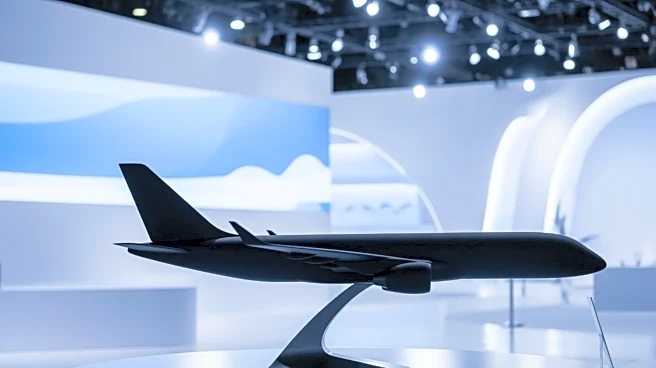What's Happening?
At the Dubai Airshow, Gulf airlines including Emirates, FlyDubai, and Etihad announced significant aircraft orders, signaling continued growth in the region's aviation sector. Emirates committed to purchasing
65 additional Boeing 777-9 aircraft, while FlyDubai placed orders for 75 Boeing 737 MAXs and 150 Airbus A321neos. Etihad also expanded its fleet with orders for up to 32 aircraft, including the A330-900 and A350-1000 models. These orders reflect the airlines' strategic plans to expand their operations and accommodate increasing passenger demand. The announcements come amid geopolitical tensions in the Middle East, but the airlines remain optimistic about their growth prospects.
Why It's Important?
The substantial aircraft orders by Gulf airlines underscore the region's pivotal role in global aviation. These investments are expected to enhance the airlines' capacity to serve more passengers and expand their networks, contributing to the economic growth of the UAE and surrounding areas. The move to larger and more efficient aircraft aligns with the airlines' long-term strategies to improve operational efficiency and reduce environmental impact. Additionally, the shift to Dubai World Central airport will provide the necessary infrastructure to support this growth, positioning the UAE as a major hub for international travel.
What's Next?
As the airlines prepare for the transition to Dubai World Central airport, they will focus on strategic planning to optimize operations and maximize the benefits of their new aircraft. Emirates, FlyDubai, and Etihad will continue to monitor geopolitical developments and adjust their strategies accordingly to mitigate risks. The successful implementation of these plans will depend on timely aircraft deliveries and the completion of infrastructure projects at the new airport. The airlines will also explore opportunities to enhance passenger experience and maintain their competitive edge in the global market.









